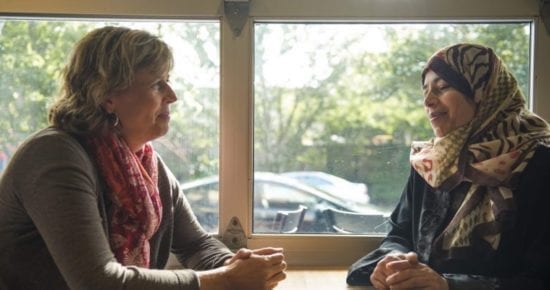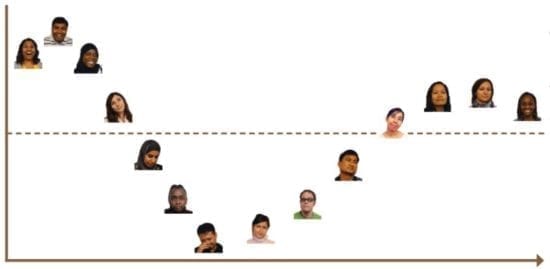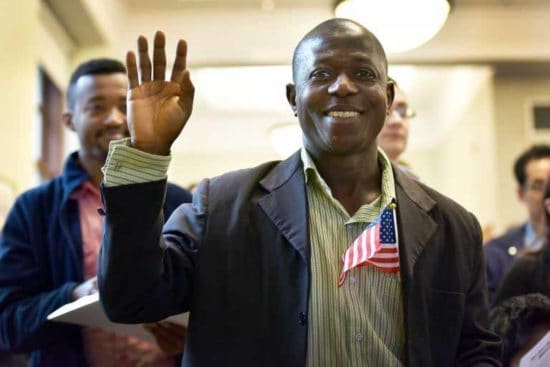Що таке хороші манери?
Хороші манери - це дії, які демонструють повагу і турботу про тих, хто нас оточує. У Сполучених Штатах те, що вважається хорошими манерами, може змінюватися залежно від ситуації та регіону. Знайомство з американською культурою може допомогти вам почуватися комфортніше під час спілкування з іншими людьми.
Загальні поради щодо хороших манер і ввічливості
Ось кілька способів виявити повагу і мати хороші манери в Сполучених Штатах.
1. Вітайтеся з людьми, коли зустрічаєтесь з ними
При першій зустрічі з кимось ввічливо сказати "Привіт" або "Привіт, приємно познайомитися". У професійному середовищі рукостискання є поширеною практикою, хоча й не обов'язковою. Чоловіки і жінки вітаються за руку, і якщо вам незручно, ви можете покласти руку на груди і злегка схилити голову в якості ввічливої альтернативи. Якщо ви зустрінетеся з людиною знову, ви можете сказати: "Приємно знову вас бачити" або запитати, як у неї справи.
2. Встановіть зоровий контакт
У США дуже важливий зоровий контакт, який показує, що ви уважні та зацікавлені в розмові. Зазвичай люди дивляться в очі протягом частини розмови, але не всієї. Якщо ви уникаєте зорового контакту, інші можуть подумати, що ви щось приховуєте або налаштовані недружелюбно.
3. Поважайте особистий простір
Люди в США, як правило, стоять на відстані однієї ноги один від одного, коли розмовляють. Стоячи занадто близько, вони можуть відчувати себе некомфортно. Однак деякі люди можуть бути більш фізичними і можуть доторкнутися до вашої руки або обійняти вас під час розмови. Якщо це викликає у вас дискомфорт, ви можете зробити крок назад, щоб відчути себе комфортно.
4. Скажи "будь ласка"
"Будь ласка" - це звичайне слово, коли ми просимо про щось. Наприклад, замовляючи їжу в ресторані, ви можете сказати: "Мені, будь ласка, суп". Якщо ви не скажете "будь ласка", люди можуть подумати, що ви поводитеся неввічливо.
5. Скажіть "дякую"
Люди в США часто говорять "дякую" або "спасибі", навіть за дрібниці. Наприклад, якщо хтось дає вам книгу, ви повинні сказати "дякую". Це свідчить про вдячність, особливо коли хтось допомагає або намагається допомогти вам.
6. Скажи "вибач"
У США прийнято говорити "вибачте", навіть за незначні помилки чи нещасні випадки. Наприклад, якщо хтось наштовхується на вас, він може сказати "вибачте" або "перепрошую". Також ввічливо висловлювати співчуття, наприклад, сказати: "Мені шкода це чути", коли хтось ділиться поганими новинами.
7. Етикет за столом
Коли ви обідаєте з іншими, є кілька загальних правил поведінки за столом, яких слід дотримуватися. Зачекайте, поки всі обслужать, перш ніж їсти, жуйте з закритим ротом, а серветку покладіть собі на коліна. Якщо людина, яка запрошує вас до себе додому або на захід, пропонує їжу, ввічливо прийняти її або ввічливо відмовитися, сказавши "ні, дякую". Також вважається ввічливим залишатися за столом, поки всі не доїдять.
8. Прикривайте рот під час кашлю, чхання або відрижки
Люди в США вважають неввічливим відригувати або кашляти, не прикриваючи рота. Якщо ви відригуєте або відходять гази, ввічливо сказати: "Вибачте".
9. Зачекайте в черзі
Люди в США очікують своєї черги в чергах. У магазині, на автобусній зупинці чи на заході люди зазвичай вишиковуються в чергу. Різати на очах у інших вважається неввічливим. Більшість людей також чекають своєї черги в проході до літака або під час посадки.
10. Притримувати двері для інших
Притримувати двері для людей, які стоять позаду вас, є ввічливим жестом, незалежно від того, чи ви чоловік, чи жінка. Ви часто бачите, як люди роблять це для інших, і це вважається ввічливим.
11. Приходьте вчасно
Люди в США загалом цінують пунктуальність. Запізнення на зустрічі, наради та соціальні заходи свідчить про повагу до часу інших людей. Якщо ви запізнюєтеся, ввічливо попередити про це людину, з якою ви зустрічаєтеся.
12. Користуйтеся телефоном обережно
У громадських місцях або під час зустрічей ввічливо вимикати телефон або користуватися ним обережно. Не користуйтеся телефоном, коли хтось розмовляє з вами або під час важливих подій.
13. Поважайте різноманітність
США - різноманітна країна з людьми різного походження. Важливо бути відкритим і поважати культурні відмінності. Уникайте образливих або нетактовних коментарів про чиюсь расу, релігію чи походження.
14. Залучайтеся до активного слухання
Під час розмови ввічливо активно слухати. Це означає встановлювати зоровий контакт, час від часу кивати головою і демонструвати зацікавленість у тому, що говорить співрозмовник. Люди в США цінують пряме та уважне спілкування.
15. Нахил
У сфері послуг, наприклад, у ресторанах, чайові є звичайним і очікуваним явищем. Зазвичай чайові становлять 15-20% від загального рахунку за хороший сервіс. Вам також можуть знадобитися чайові в таких місцях, як таксі або перукарні.
Ми прагнемо надавати зрозумілу та найбільш актуальну інформацію. Ця інформація не є юридичною консультацією.



